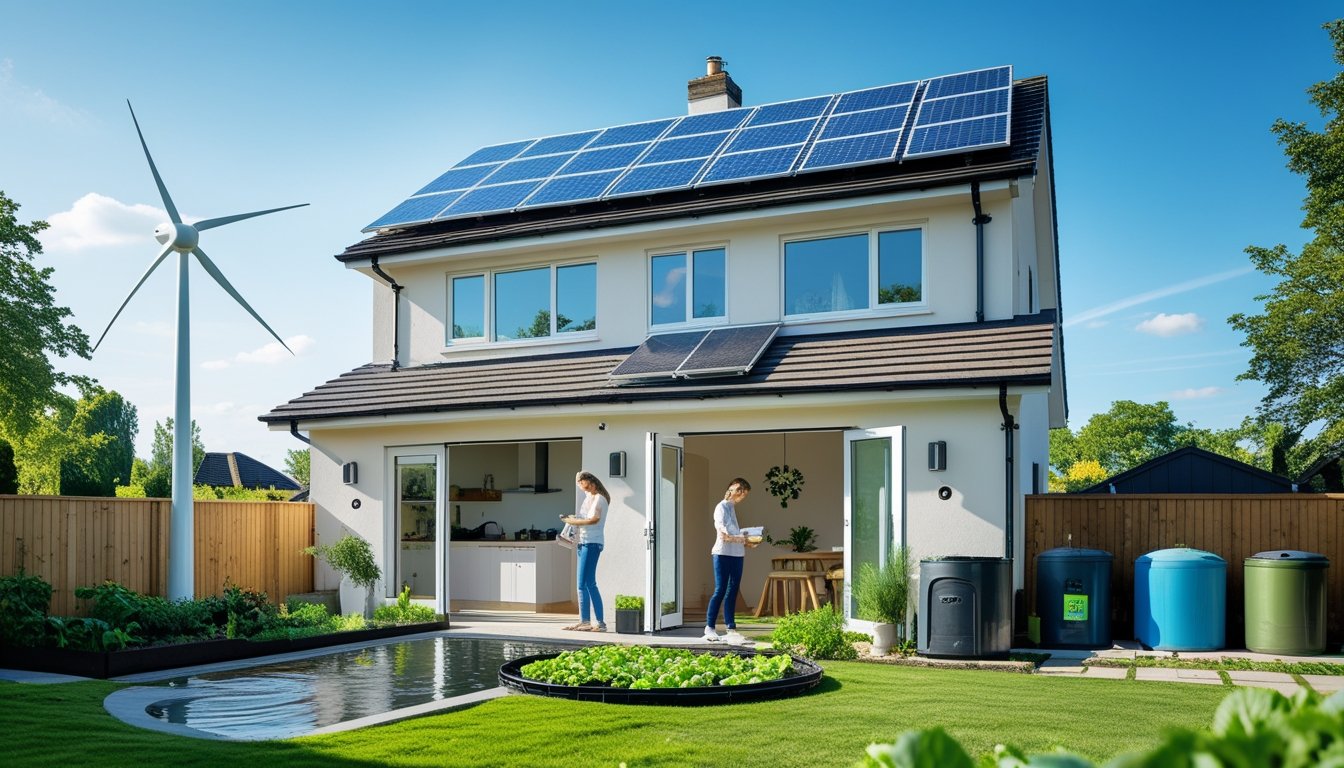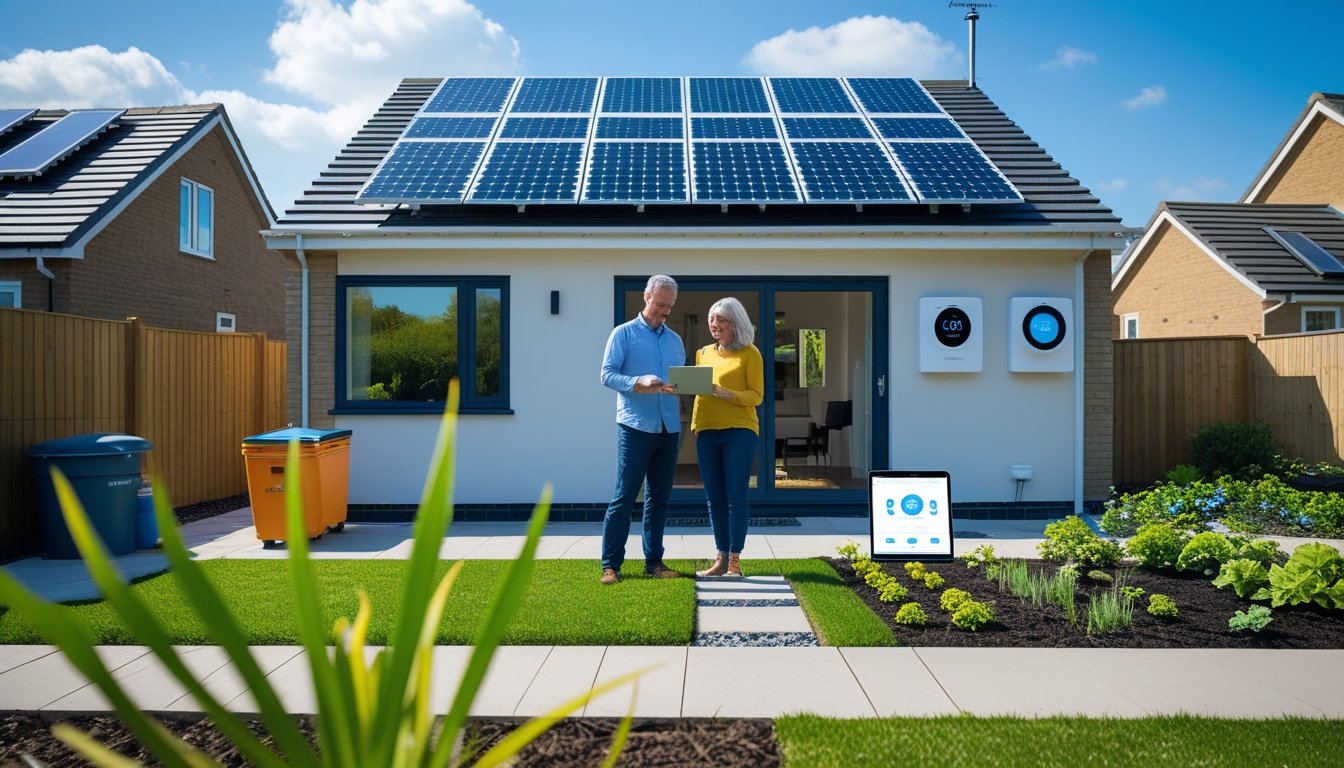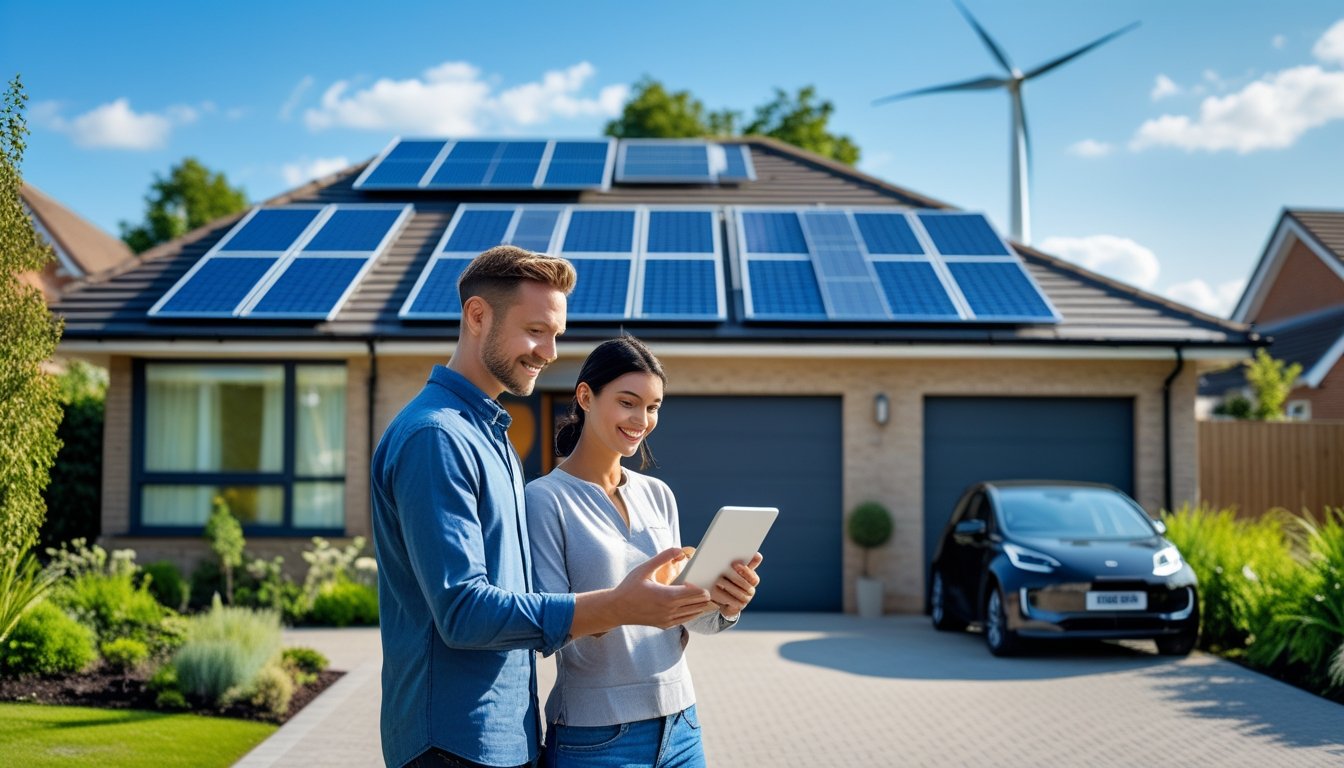Late updated: 06 Aug 2025 15:08
Written by: Eleanor Hartman
Sustainable Energy Tips For UK Homeowners: Boost Efficiency and Save Money
Sustainable energy is no longer a concept for the future; it's an urgent necessity for homeowners across the UK today. With rising energy costs and increased awareness of climate change, it is vital for us to explore practical and effective ways to reduce our energy consumption. Embracing sustainable energy solutions not only helps us slash energy bills but also enables us to contribute positively to the environment.

It's clear that incorporating energy efficiency into our daily lives has lasting benefits. From simple, cost-effective changes such as sealing drafts to more significant investments in renewable technology like solar panels, there are numerous ways to make our homes more energy efficient. By adopting these methods, we can enjoy a greener lifestyle without compromising on comfort or convenience.
To make a meaningful impact, we must understand how to integrate these solutions seamlessly into our homes. In this article, we'll explore essential tips that will help us transition smoothly to a more sustainable way of living. Whether it's identifying the right grants for upgrading heating systems or finding the best insulation practices, we’re here to guide you through the process.
Key Takeaways
- Embrace sustainable energy for lower bills and environmental benefits.
- Integrate small changes and efficient technology for energy savings.
- Understand essential tips for a seamless sustainable transition.
Essential Sustainable Energy Tips for UK Homeowners

We can significantly reduce our energy bills and improve our carbon footprint by incorporating a few essential sustainable practices at home. These tips range from efficient insulation methods to adopting smart technology and energy-saving habits.
Improving Home Insulation and Draught-Proofing
Enhancing home insulation is fundamental in reducing energy costs. Proper wall insulation and loft insulation play a vital role in maintaining indoor temperatures by preventing heat loss. Draught-proofing around windows and doors is equally important. By sealing gaps and fitting draught excluders, homeowners can prevent unwanted cold air entry and retain warmth.
Double-glazed windows further enhance thermal insulation. They trap a layer of air between two panes of glass, which reduces heat loss. Investing in cavity wall insulation also makes homes more energy-efficient, decreasing the reliance on heating systems.
Maximising Energy Efficiency with Smart Technology
Smart technology empowers us to optimise energy usage. Smart meters, for instance, provide real-time data on energy consumption, enabling us to make informed decisions. These devices help reduce wastage and can contribute to lowering energy bills.
Smart thermostats are another valuable tool. They allow users to control heating remotely and set schedules that align with daily routines. By leveraging smart technology, we can ensure our heating systems operate only when necessary, thus avoiding unnecessary energy usage.
Optimising Heating and Thermostat Use
Efficient use of heating systems and thermostats is crucial. One effective strategy is to lower the thermostat by just a degree or two, which can lead to significant annual savings without compromising comfort. It's essential to regularly service boilers and heaters to ensure they run optimally.
Using programmable thermostats to schedule heating based on occupancy patterns further enhances efficiency. For instance, reducing heating during daytime work hours or overnight when additional warmth is unnecessary can lead to substantial energy savings.
Adopting Energy-Saving Habits and Appliances
Developing energy-saving habits is both cost-effective and sustainable. Turning off lights when leaving a room and unplugging devices not in use are simple yet impactful practices. Additionally, choosing energy-efficient appliances plays a significant role. Look for appliances with high energy ratings, as they consume less power over their lifespan.
Consider using LED lighting, which uses less energy and lasts longer than traditional bulbs. Washing clothes with cold water and air drying clothes when possible are other effective ways to conserve energy. By integrating these habits into our daily lives, we can efficiently manage our energy use and contribute to a more sustainable environment.
Integrating Renewable Energy and Sustainable Living
Making homes more energy-efficient can significantly cut energy costs while promoting environmental benefits. By harnessing solar panels, exploring a range of renewable energy options, and embracing eco-friendly practices, we can truly transform our homes into sustainable sanctuaries.
Investing in Solar Panels and Solar Energy
Solar panels are a key element in harnessing clean energy. As sunlight is abundant, particularly in the UK during sunnier months, solar panels convert this energy into electricity for household use. Not only does this reduce reliance on fossil fuels, but it also cuts down on energy bills.
Installing solar panels involves an initial investment, which can be offset by government incentives and schemes. We see a return on investment over time as energy costs decrease. Maintenance is typically minimal, involving periodic cleaning and checks to ensure optimal performance.
Exploring Other Renewable Energy Solutions
Beyond solar, there are several renewable energy solutions worth considering. Wind energy, while more common in large-scale operations, can be harnessed in some residential setups, particularly in areas with sufficient wind levels. Small wind turbines and water heating systems can supplement household energy use.
Additionally, geothermal energy, though initially costlier, offers sustainable heating and cooling. For those with access to biomass, using organic materials for energy can be a feasible option. Our strategy involves combining some of these solutions for a more comprehensive energy approach.
Enhancing Biodiversity and Eco-Friendly Practices
Improving biodiversity around our homes is a cornerstone of sustainable living. Planting native species and maintaining green spaces encourage local wildlife and support natural ecosystems. Vertical gardens or green walls can maximise space while promoting air quality.
Implementing rainwater harvesting systems and composting organic waste reduce our environmental footprint. By focusing on recycling and reducing waste, we contribute to a sustainable future. Our choices today shape the ecological health of tomorrow.
In summary, integrating renewable energy and sustainable living practices empowers us to support both energy efficiency and environmental conservation in meaningful ways.
Frequently Asked Questions

In addressing the concerns of UK homeowners, we explore various methods to reduce energy consumption, conduct home energy surveys, and leverage government-backed initiatives. This section also highlights practical steps for enhancing home energy efficiency and provides advice from the Energy Saving Trust.
What are the most effective methods to reduce energy consumption in a UK household?
Effective methods include upgrading to energy-efficient appliances, improving insulation, installing double glazing, and using smart thermostats. Implementing these changes can significantly decrease energy usage and lower bills.
How can homeowners in the UK conduct a home energy survey to identify savings opportunities?
Homeowners can perform a DIY energy audit by checking areas like windows, doors, and attic insulation for leaks. Professional services offer more detailed surveys, providing specific recommendations for energy-saving improvements.
What are some government-backed initiatives available to UK homeowners to help with energy conservation?
The UK government offers schemes such as the Green Homes Grant and the Energy Company Obligation (ECO). These initiatives provide financial support for energy-efficient improvements, making it more affordable for homeowners to undertake upgrades.
Can you list practical steps for UK residents to enhance their home's energy efficiency?
Residents should consider switching to LED lighting, utilising smart home technology, insulating loft spaces, and installing solar panels. These measures can improve energy efficiency and reduce carbon footprints.
What advice does the Energy Saving Trust offer for UK homeowners looking to save electricity?
The Energy Saving Trust recommends practical measures like turning off standby appliances, using energy-efficient light bulbs, and setting thermostats to optimal temperatures. These steps can help save electricity and reduce monthly bills.
How can residents in Scotland specifically benefit from the Home Energy Scotland services?
Home Energy Scotland provides Scottish residents with free, impartial advice on energy efficiency. They offer support for finding grants and funding options to make homes more sustainable, tailoring solutions to individual needs.